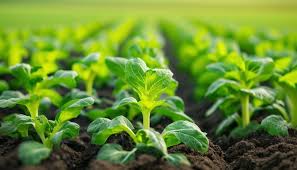A new policy brief, produced as part of the LAMASUS project, highlights that strategic agricultural de-intensification in the EU could help reduce agricultural carbon emissions by nearly a third and considerably improve biodiversity recovery.
The Common Agricultural Policy (CAP) is the European Union’s agricultural policy framework, focused on tackling climate change, protecting natural resources, and enhancing biodiversity. Recent research, conducted by the LAMASUS consortium, shows that strategic de-intensification of agriculture could produce major co-benefits for climate, biodiversity, and farm profitability.
“While the environmental benefits of reducing intensive farming practices — such as using less fertilizer and pesticides, keeping fewer animals per hectare, and growing crops less frequently — are well recognized within the research community, our study goes further by identifying specific win-win areas where co-benefits for both climate and biodiversity can be achieved at minimal economic cost,” says Leopold Ringwald, coauthor of the study and researcher at the IIASA Integrated Biosphere Futures Research Group.
The study reveals several important insights with strategic implications for EU agricultural policy:
• Strategic de-intensification on 7.0% of EU agricultural land— in win-win areas—could reduce agricultural emissions by 4.9%, equivalent to a total reduction of an estimated 12 million tons of CO₂-equivalent per year. This would represent around 3.9% of the EU’s 2030 total mitigation target for agriculture, forestry and other land use, while entailing a 2.0% annual reduction in total agricultural production value.
• In win-win areas, investing at least €350 per hectare is estimated to increase the variety and abundance of native species by 1%. This is a significant figure. For comparison, European biodiversity intactness improved by just 1.1% between 2000 and 2018.
• Scientists identified three countries with above-average shares of win-win areas but below-average planned support per hectare for de-intensification — Poland, Austria, and Slovenia. In particular, Poland and Austria have over 50% of their agricultural land classified as intensively used. Redirecting funds toward these areas could improve biodiversity and climate outcomes per euro spent.
• Result-based payments could offer a promising way forward enabling flexible, outcome-oriented support while encouraging uptake where environmental returns are highest. Restructuring the de-intensification-focused direct payments and eco-schemes might enable further environmentally friendly outcomes at potentially low production value losses.
The researchers further highlight the fact that foreseen CAP funding does not always align with regions where de-intensification would be most effective, emphasizing the need to ensure that policy efforts are focused where they deliver the greatest impact and achieve climate and biodiversity goals without compromising food security.
The study identifies five key CAP policy areas that could help foster agricultural de-intensification. Those include: fertilisation policies promoting the use of organic fertilizers instead of synthetic ones; grassland and grazing policies focused on improving biodiversity and soil health; landscape conservation measures; plant protection policies promoting biological pest control instead of insecticide; low-input farming systems and self-sustaining agriculture.
What is LAMASUS?
LAMASUS is a Horizon Europe project aimed at facilitating the achievement of climate neutrality in the EU. It includes 17 partners from eight European countries — Austria, Germany, the Netherlands, France, Poland, Spain, Norway and Switzerland.
Source - https://idw-online.de













